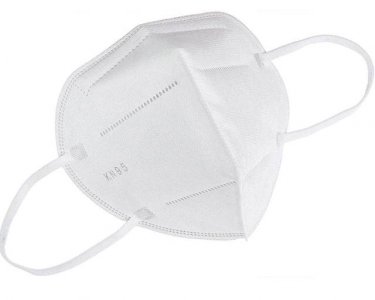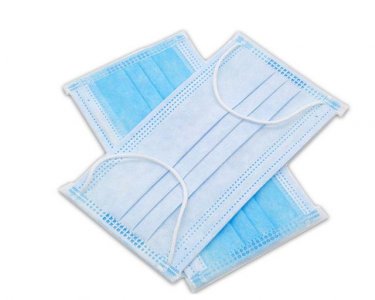Couldn't find the product you want?
Fill out this form to request the product.
Export from Turkey
Turkey has the world's 17th largest GDP. The country is among the founding members of the OECD and the G-20 major economies. Turkey's largely free-market economy is increasingly driven by its industry and service sectors, although its traditional agriculture sector still accounts for about 25% of employment. An aggressive privatization program has reduced state involvement in basic industry, banking, transport, and communication, and an emerging cadre of middle-class entrepreneurs is adding dynamism to the economy and expanding production beyond the traditional textiles and clothing sectors. The automotive, construction, and electronics industries are rising in importance and have surpassed textiles within Turkey's export mix.
Turkey has a sizable automotive industry, which produced over a million motor vehicles in 2012, ranking as the 17th largest producer in the world. Turkish shipbuilding exports were worth US$1.2 billion in 2011. The major export markets are Malta, Marshall Islands, Panama and the United Kingdom.
Other key sectors of the Turkish economy are banking, construction, home appliances, electronics, textiles, oil refining, petrochemical products, food, mining, iron and steel, and machine industry.
Turkey major exports are textiles, clothing, cars, iron and steel, refined petroleum, raw iron bars, vehicle parts, delivery trucks, chemicals and pharmaceuticals. Turkey is also one of the leading shipbuilding nations.
Turkey's main export partners are Germany, Iraq, UK, Italy, France.
Import to Turkey
The economy of Turkey is defined as an emerging market economy by the IMF. Turkey is among the world's developed countries. Turkey is also defined by economists and political scientists as one of the world's newly industrialized countries. The country is among the world's leading producers of agricultural products; textiles; motor vehicles, ships and other transportation equipment; construction materials; consumer electronics and home appliances.
The EU accession process has been a significant anchor for reforms in Turkey, but progress has slowed in recent years. The EU is Turkey’s largest economic partner, accounting for around 40 percent of Turkish trade. Turkey has benefited significantly from deepening integration with the EU through the growing sophistication of both exports and imports and access to financing.
Turkey imports mainly machinery, chemicals, semi-finished goods, gold, scrap iron, fuels and transport equipment.
Main import partners of Turkey are Russia, China, Germany, the US, France, South Korea.
Dentistry is a constantly developing and advancing field. Dentists and researchers are always working to make procedures less-invasive, more comfortable, and more economical. It is very important for the doctors and suppliers to stay updated on the latest techniques and use the safest equipment.
Dental equipment has two large fields: dental tools for oral cavity and appliances for dental office. Dental instruments are tools that dental professionals use to provide dental treatment. They include instruments to examine, restore and remove teeth and surrounding oral structures. Dental office appliances include drilling machines, dental chairs, air compressors, suction units, x-ray equipment, vacuum autoclaves, thermodisinfectors, curing lights, endodontic motors, capsule mixing units.
Instruments for dental anesthesia including not only local anesthetics but sedation and general anesthesia, feature their own variety and types.
Dental implantology is also a separate branch with its own necessary instruments, devices and different types of dental implants.
Every dental lab, cabinet or private practice office should be provided with the most modern dental equipment and buy dental instruments for the best medical results.
Standard dental tools are the instruments used to examine, restore and extract teeth and manipulate tissues.
All dental appliances - examination instruments, dental hygiene instruments, dental drills, dental lasers, dental torque wrench, burs, restorative instruments, dental pluggers, orthodontic instruments, teeth extraction tools, endodontic instruments, should be high quality dental tools. Dental instruments range in their strength, resistance to corrosion and rust, and their price.
Dental tools are made of a various number of materials, including stainless steel, carbon steel, and tungsten carbide, as well as diamonds. Dental diamond instruments are premium-grade dental tools which are used more and more often in modern dentistry.
On Export Portal you can buy dental equipment online with its wide range of items presented, including dental mirrors, explorers, retractors, dental excavators, surgical dental instruments, burnishers, dental needles, pliers, periodontal probes, scalers, and curettes. The choice of dental and orthodontic equipment features hundreds of surgical instruments for the best care and needs in dental, periodontal, endodontic, orthodontic and prosthodontic equipment.
Customs requirements of Turkey
Turkey Customs Contacts
Website: http://www.turkeycustoms.net/
E-mail: info@turkeycustoms.net
Address: Maslak Ayazağa mah. Dereboyu sok. Sun Plaza Kat 13, No: 25, Şişli, İstanbul, Türkiye
Telephone: +90 212 444 12 37
Fax: +90 212 366 58 02
Turkey is a contry situated in Eurasia, mainly on the Anatolian peninsula in Western Asia, with a smaller portion on the Balkan peninsula in Southeast Europe. It is bordered by 8 countries: Syria, Iraq, Iran, Armenia, Azerbaijani exclave of Nakhchivan, Georgia, Bulgaria, and Greece. It is also bordered by the Black Sea, the Mediterranean Sea and the Aegean Sea. Turkey is a member of the UN, NATO, a founding member of the OECD, OSCE, OIC and G-20. Turkey is also an associate member of the European Economic Community and the EU Customs Union, as well as an applicant to the European Union. The country's location between Europe and Asia makes it strategically important.
Tariffs
Tariffs on imports from non-European countries are approximately 3% above European Union rates, but vary on a product-by-product basis.
A Value Added Tax applies in Turkey irrespective of the country of origin. For most agricultural products (basic food) VAT ranges from 1% to 8% and for some processed products can reach up to 18%.
Capital goods, some raw materials, imports by government agencies and state owned enterprises and products for investments with incentive certificates are exempt from import fees. Import duties are calculated on the Cost, Insurance and Freight (CIF) value.
The government has adopted the EU's common external trade standards, so customs tariffs and duties (with a few exceptions) are equal to those of the EU. Turkey's weighted rate of protection for imports of non-sensitive industrial products is zero for items originating in the EU and European Free Trade Association (EFTA) countries.
Some agricultural goods will remain protected by steep tariffs. When the EU applies further Uruguay Round reductions, Turkey's average rates for third countries will be lowered to 3.5 per cent.
Despite the EU alliance, Turkey continues to maintain various tariff and non-tariff barriers to control and restrict imports, particularly for agriculture products (including wine).
Product certification, labelling and packaging
Labelling
Special regulations apply to labelling of some items, including:
- food products
- products used by humans
- pharmaceutical products
- insecticides
Translation into Turkish is required and all industrial products must bear a registered trademark. All packages, cases and bales must bear:
- shipping marks
- numbers
- dimensions
- gross weight of the merchandise
Packaging
Packing should be strong and should guard against heat in summer, humidity in winter and possible periods of storage in the open.
Special certificates
Import licenses and phytosanitary certificates are necessary for food and agricultural commodity imports.
Methods of quoting and payment
Quotes should be in the form of an itemised pro-forma invoice, Free on Board (FOB) and Cost, Insurance and Freight (CIF). Unless instructions are given to the contrary, goods should be fully insured on the CIF value and covered for the entire journey. A letter of credit and favourable credit terms, e.g. up to 60 days, are often expected.
Documentary requirements
Commercial invoice
The commercial invoice must be in triplicate with the original certified and signed by the exporter. The exporter must endorse the original as follows: "We hereby certify that this is the first and original copy of our invoice, the only one issued by our firm for the goods herein mentioned."
It is advisable to have documents certified by the Turkish Embassy or Consulate. The commercial invoice must contain:
- description of goods
- unit price
- quantity and total amount
- net weight or number of units
- a breakdown of the total amount if the invoice covers freight charges and/or insurance is required
Certificates of origin
Two copies of the certificate of origin and three copies of the packing list is generally required. It may need to be certified by a chamber of commerce or similar body or by the Turkish Consulate in Australia.
The certificate must identify:
- the name and address of the consignor and consignee
- the nature of the goods
- the type of packing and number of packages
- marks, numbers, gross and net weight in kilograms
- FOB and CIF values together with shipping route
Bill of lading
The original bill of lading and three copies should be submitted. Details must correspond exactly with those on the commercial invoice.
Sources:
http://www.verginet.net/UserFiles/File/pusula_serisi/customs(1).pdf
http://turkishlaborlaw.com/news/legal-news/110-import-regulations-in-turkey

